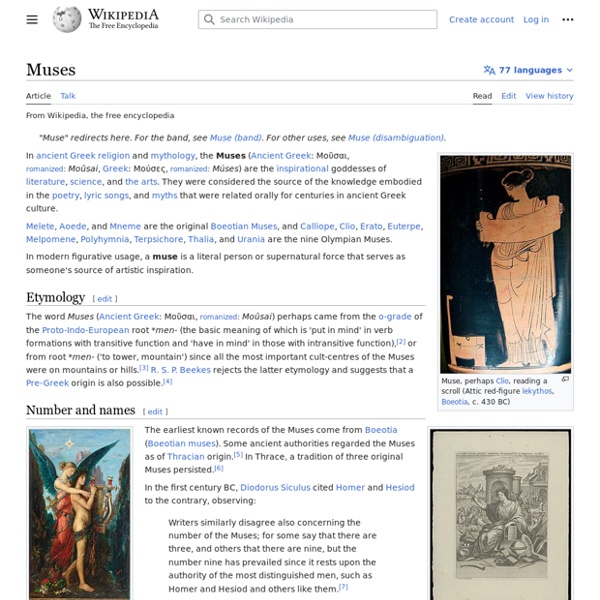Homer, The Iliad, Scroll 13
Scroll 13 Now when Zeus had thus brought Hektor and the Trojans to the ships, he left them to their never-ending toil [ponos], and turned his keen eyes away, looking elsewhere towards the horse-breeders of Thrace, the Mysians, fighters at close quarters, the noble Hippemolgoi, who live on milk, and the Abians, the most just [dikaioi] of humankind. He no longer turned so much as a glance towards Troy, for he did not think that any of the immortals would go and help either Trojans or Danaans. But King Poseidon had kept no blind look-out; he had been looking admiringly on the battle from his seat on the topmost crests of wooded Samothrace, whence he could see all Ida, with the city of Priam and the ships of the Achaeans. He had come from under the sea and taken his place here, for he pitied the Achaeans who were being overcome by the Trojans; and he was furiously angry with Zeus.
Ptolemy III Euergetes
Ptolemy III Euergetes (Greek: Πτολεμαίος Εὐεργέτης Ptolemaios Euergetes "Ptolemy the Benefactor"; c. 280 – November/December 222 BC) was the third king of the Ptolemaic dynasty in Egypt from 246 to 222 BC. The Ptolemaic Kingdom reached the height of its power during his reign. Ptolemy III was the eldest son of Ptolemy II Philadelphus and his first wife Arsinoe I. When Ptolemy III was young, his mother was disgraced and he was removed from the succession. He was restored as heir to the throne in the late 250s BC and succeeded his father as king without issue in 246 BC.
William Blake Artworks & Famous Paintings
c. 1795 Pity This piece, like Songs of Innocence and Experience, was made using Blake's illuminated printing technique. It seems to portray two cherubim, one of whom holds a baby, on white horses in a darkened sky, jumping over a prostrated female figure.
Homer, The Iliad, Scroll 14
Scroll 14 Nestor was sitting over his wine, but the cry of battle did not escape him, and he said to the son of Asklepios, "What, noble Machaon, is the meaning of all this? The shouts of men fighting by our ships grow stronger and stronger; stay here, therefore, and sit over your wine, while fair Hekamede heats you a bath and washes the clotted blood from off you. I will go at once to the look-out station and see what it is all about." As he spoke he took up the shield of his son Thrasymedes that was lying in his tent, all gleaming with bronze, for Thrasymedes had taken his father's shield; he grasped his redoubtable bronze-shod spear, and as soon as he was outside saw the disastrous rout of the Achaeans who, now that their wall was overthrown, were fleeing pell-mell before the Trojans. Then Nestor horseman of Gerene answered, "It is indeed as you say; it is all coming true at this moment, and even Zeus who thunders from on high cannot prevent it.
Ptolemy II Philadelphus
Ptolemy II Philadelphus (Greek: Πτολεμαίος Φιλάδελφος, Ptolemaios Philadelphos "Ptolemy, lover of his sister"; 308/9 – 28 January 246 BCE) was the pharaoh of Ptolemaic Egypt from 283 to 246 BCE. He was the son of Ptolemy I Soter, the Macedonian Greek general of Alexander the Great who founded the Ptolemaic Kingdom after the death of Alexander, and queen Berenice I, originally from Macedon in northern Greece. During Ptolemy II's reign, the material and literary splendour of the Alexandrian court was at its height.
Isle of No Man
North Brother Island is New York’s miniature Detroit, without the industry — a 20-acre, un-High Line-ed wilderness of trees and vines and abandoned, crumbling buildings in the treacherous tidal strait where the waters of New York Harbor trade places with those of Long Island Sound. It has been uninhabited for 50 years and off limits to all but biologists for more than a decade; the city manages it as a nature preserve. While it has always felt secret-filled, it now has a new one, which can be glimpsed in the photographer Christopher Payne’s new book, “North Brother Island: The Last Unknown Place in New York City”: When a vast swath of trees was recently cut down in the Bronx for development, the island’s forest, created by neglect, became the largest in the South Bronx.
Seduction
Seduction is the process of deliberately enticing a person, to engage in a relationship, to lead astray, as from duty, rectitude, or the like; to corrupt, to persuade or induce into engaging in sexual behaviour. Strategies of seduction include conversation and sexual scripts,[1] paralingual features,[2] non-verbal communication,[3][4] and short-term behavioural strategies.[5] The word seduction stems from Latin and means literally "leading astray."[6] As a result, the term may have a positive or negative connotation.
Origin myth
An origin myth is a myth that purports to describe the origin of some feature of the natural or social world. One type of origin myth is the cosmogonic myth, which describes the creation of the world. However, many cultures have stories set after the cosmogonic myth, which describe the origin of natural phenomena and human institutions within a preexisting universe. In Graeco-Roman scholarship, the terms etiological myth and aition (from the Ancient Greek αἴτιον, "cause") are sometimes used for a myth that explains an origin, particularly how an object or custom came into existence.



